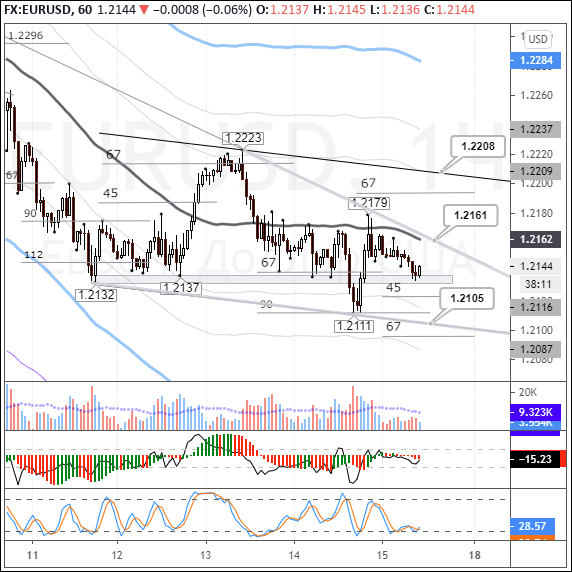The euro closed to the downside on Thursday, January 14, down 0.04% to 1.2512. Heightened volatility was seen during the European and North American sessions.
The single currency came under pressure from a decline in the EURGBP cross pair as well as political uncertainty in Italy. Former PM Matteo Renzi pulled his Italia Viva party out of the country’s ruling coalition on Wednesday due to a dispute over the government’s economic response to the coronavirus pandemic.
During the North American session, the euro recovered from 1.2111 to 1.2179 after the DXY fell. These gains may have resulted from the expected unveiling of president-elect Joe Biden’s economic rescue plan, as well as a speech by Jerome Powell. The euro also got a boost from rising US Treasury yields.
Powell announced that the central bank will not be raising rates anytime soon and he also rejected speculation that the Fed could start tapering bond purchases in the short term.
Today’s macro agenda (GMT 3)
- 13:00 Eurozone: balance of trade (November); NIESR monthly GDP tracker (December)
- 16:30 US: retail trade (December); PPI (December) and NY empire state manufacturing index (January)
- 17:15 US: industrial production (December)
- 18:00 US: Michigan consumer expectations (January) and business inventories (November)
- 21:00 US: Baker Hughes weekly oil rig count

Current outlook
On Thursday, the key pair was little changed. During the European session, the price action dropped to 1.2111, and in the North American session, it retraced to the intraday high at 1.2179. After bouncing off 1.2111, a false breakout of the horizontal support at 1.2130 was seen. Buyers were unable to retake the trend line (1.2180) and the price action retraced to earlier support at 1.2130.
Major currencies are trading in the red during Asian trading. The Australian and New Zealand dollars are the top two underperforming currencies. Risk aversion has broken out, which also puts pressure on the single currency.
Too much negativity has piled up for the euro: Renzi's decision triggered a government crisis that could drag on for several weeks; Chancellor Merkel wants to strengthen the lockdown; Germany's economy contracted 5% in 2020 after 10 years of unbroken growth. Given that today is Friday, we should expect to see heightened market volatility.

